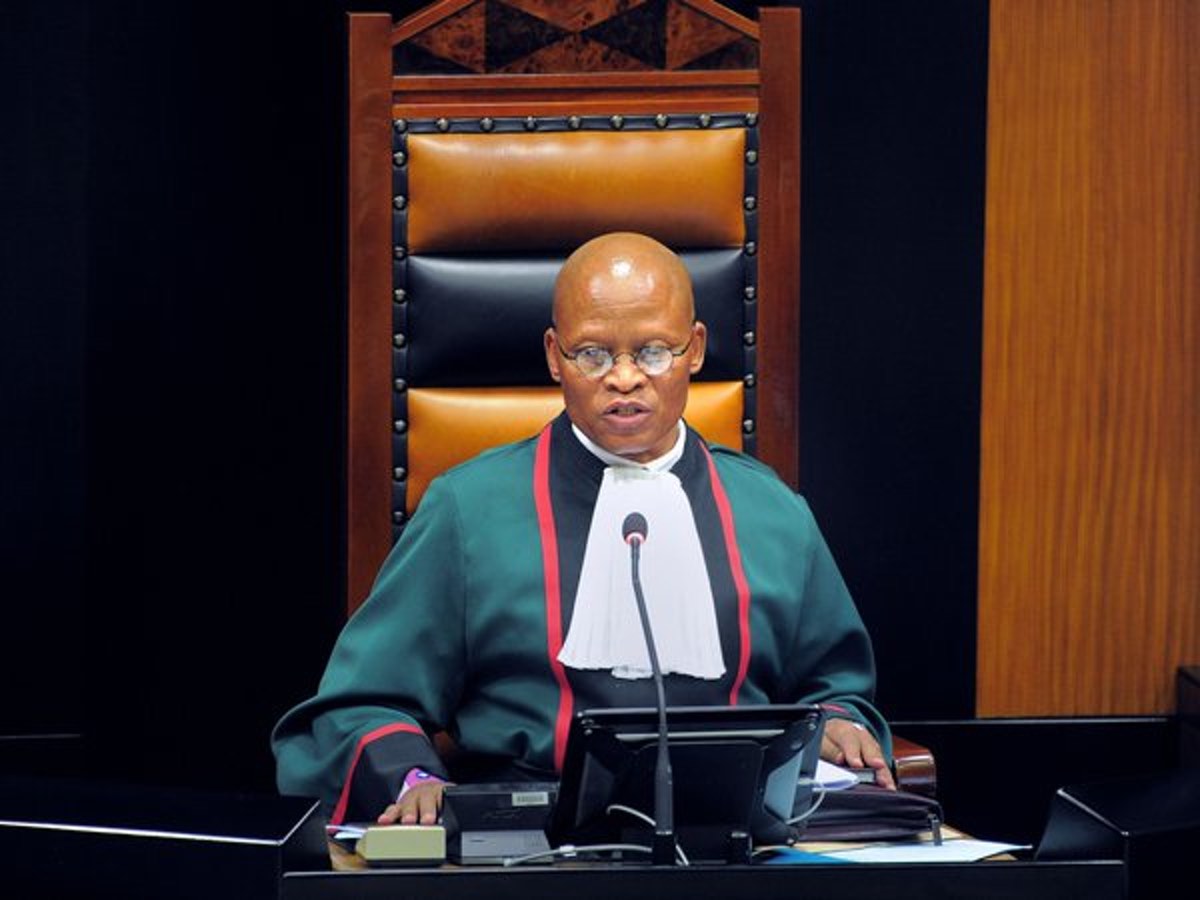On 23 June 2020, two prominent leaders engaged in a public conversation. That conversation, as has become customary in the Covid era, was broadcast over the usual digital platforms worldwide. The two participants were both proud South Africans – one was black, the other was white, both men hold powerful and prominent positions but beyond these superficial differences both men held an authentic commonality – a deep religious belief and commitment to peace between South Africans and between Israelis and Palestinians. However somehow, any conversation that involves the topic of Israelis and Palestinians is controversial, no matter how banal the conversation.
The “controversy” began when the two participants in the public dialogue, the Chief Rabbi of South Africa, Chief Rabbi Dr Warren Goldstein, and the Chief Justice of South Africa, Chief Justice Mogoeng Mogoeng, began to talk about the international relations between Israel and South Africa. During the conversation the Chief Justice made an innocuous statement that as a Christian, and therefore a believer in the words of the New Testament, he is obliged to have love for the Jewish people and to pray for the peace of Israelis, Palestinians and for Jerusalem. This statement was pounced on by Africa 4 Palestine, which is a splinter organisation of the main BDS (Boycott, Divestment and Sanction) movement in South Africa. Africa 4 Palestine proceeded to lay a charge of bias against the Chief Justice with South Africa’s Judicial Service Commission – the authority that regulates the conduct of Judges in the country. In its complaint, Africa 4 Palestine alleged that Chief Justice Mogoeng’s above statement should preclude him on ruling or sitting as a Justice on any issue that is currently before the Court, or which may come before the Court involving Zionism or Israel. The complaint refers to the precept that under South African law, a Judge must not involve himself or herself in matters of politics or policy. Africa 4 Palestine contends that the Chief Justice violated this precept when he made mention of his Christian love for Jews and Palestinians and his prayer for the peace of Israelis and Palestinians.
If one were to read the complaint without any knowledge of the BDS movement or of the history of Africa 4 Palestine, one would be under the incorrect assumption that the complainant’s main concern is ensuring that Judges remain apolitical. However, Africa 4 Palestine has never previously made a complaint of a Judge being partisan, or critiqued a Judge for making political comments. The organisation’s decision to lay a complaint must have ulterior reasons and while never explicitly stated in the complaint, the history and ideology of BDS / Africa 4 Palestine proves that merely expressing support for Israel is controversial in and of itself. Any reasonable person must conclude that if the Chief Justice had offered a prayer for peace about any country other than Israel, for example Brazil, Africa 4 Palestine would not have laid a complaint.
Merely mentioning one’s love for Israel, not the Israeli government, but Israel the country, is for some reason controversial and the person making the comment must be publicly shamed. According to Africa 4 Palestine and the larger BDS movement, Israel has no right to exist and any acknowledgment of the country is outside the bounds of acceptable views. Even offering a prayer for peace for all the inhabitants of the region is seen by the complainant as contemptible. That Africa 4 Palestine deems it necessary or even desirable to lay a complaint over an uncontroversial idea is risible and is driven by its hatred for Israel.
However, expressing support for Israel should not be seen as controversial. Israel has long been recognised as a legitimate state and a member of the family of nations. On 29 November 1947, the United Nations passed resolution 181 which led to the establishment of the State of Israel in the former British Mandate. It bears mention that at the time, in contrast to the rejectionist stance of the Arab world, the leaders of the Jewish community in Mandatory Palestine, accepted the principle of partition and the establishment of separate Jewish and Arab/Palestinian polities. Whether one looks at the pre-United Nations international common law of the recognition of countries as exemplified by the Montevideo Convention on the Rights and Duties of States of 1933, or even the requirement that some International Law Jurists have of United Nations recognition in order to be considered a State, it legally indisputable that under International law Israel has a right to exist. The sovereignty of Israel is recognised by 161 of 192 United Nations members including South Africa – and this list is growing, not shrinking, despite the efforts of BDS.
That the BDS movement and its affiliates such as Africa 4 Palestine should attempt to twist CJ Mogoeng’s wish for peace into a controversy, shows how in pursuit of their misguided agenda of de-legitimisation of Israel the BDS movement and its affiliates, are willing to contrive controversies where none exist, besmirch the reputation of a highly esteemed Judge and tarnish the idea for peace in the region. The Chief Justice should be applauded, not castigated, for his expression of love and compassion for both Palestinians and Israelis. A prayer for the peace of the inhabitants of a sovereign state is not a political statement.


The CJ deride the decision made against him He gave various examples of judges giving political opinions will should equally fall foul of the JSC decision. Judge Breyer , Supreme Court Justice in the USA, has just stepped into political controversy by advising against the packing of the Supreme Court bench. Now compare the two. One calls peace in Jerusalem and the other warns the government not to get involved in the judiciary. Which is a political controversy